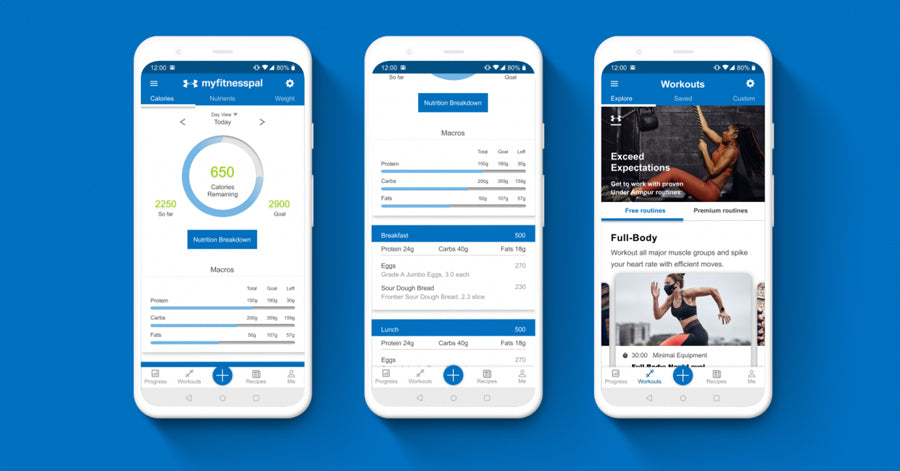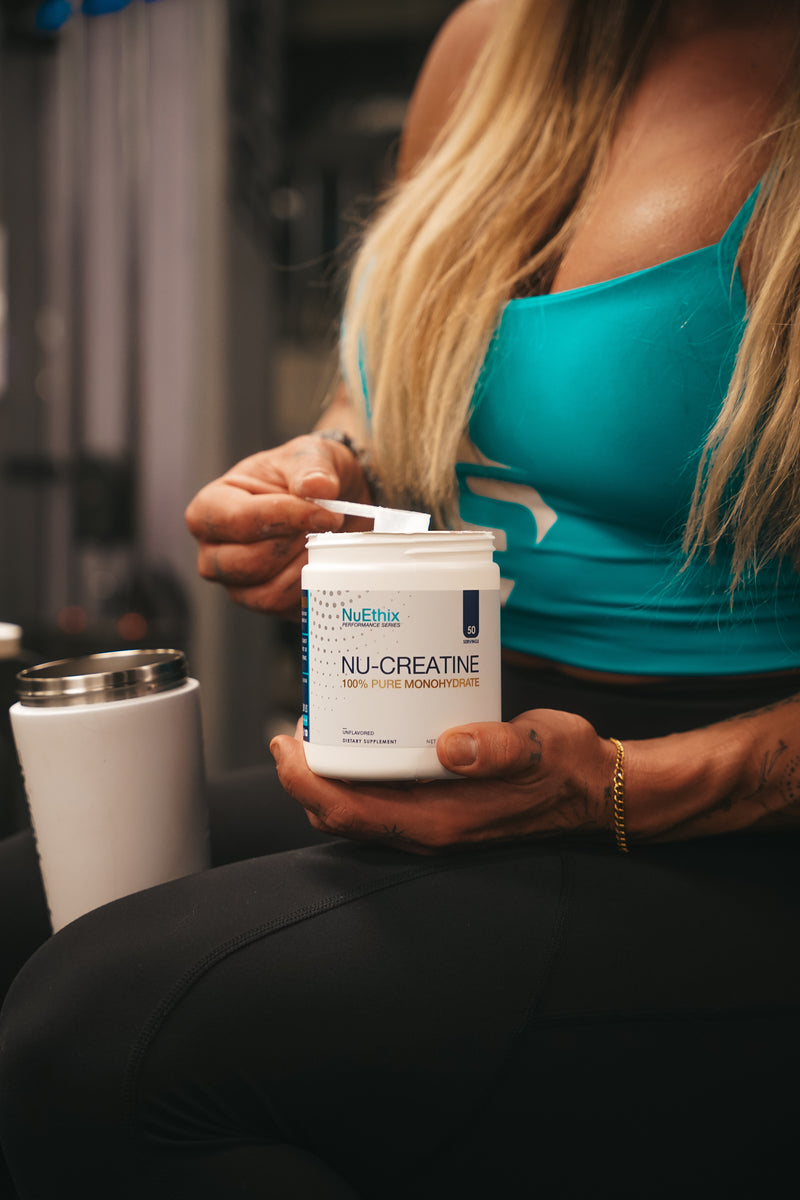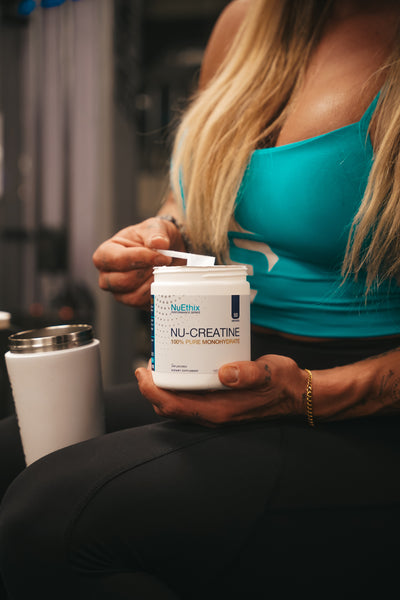
Counting Calories Vs Counting Macros: Which Is Better For You?
Counting Calories Vs Counting Macros: Which Is Better For You?
Calorie counting, you’ve probably heard the obsession over this and how it can contribute to weight loss and diet structure. In later years, counting macronutrients has become the more approached method of measuring daily nutritional intake. Made popular by the bodybuilding community, macros have been a vital unit of measurement.
For beginners, it can be hard to figure out exactly what macronutrients are and how to track them accordingly. While counting calories is self-explanatory and simple enough, there’s an important aspect that determines the difference between the two.
If you’re wondering what method you should be using, this article will break down exactly what the difference is and what the benefits are of both methods.
First, we must take a look at exactly what macronutrients are and what they mean for us more importantly, and then break them down, one by one. Let’s get into it.
What are Macros?

“Macros” is a shortened term for macronutrients. 3 macronutrients that are defined as the largest nutrients used daily. When you look at the back of a nutritional label on a food item, you’ll see the following:
- Carbohydrates
- Fats
- Protein
These are called macronutrients and our bodies use these as a source of energy. The exact values of macronutrients vary and can be broken down in a mathematical method for calories that are as follows:
- 1g of Protein = 4 Calories
- 1g of Carbohydrates = 4 Calories
- 1g of Fat = 9 Calories
Comparing macros to calories is different as we track macros in a more specific way that allows us to hit certain goals that we wouldn’t achieve if we were simply counting calories. Protein, carbs, and fats are crucial to health and fitness goals as they allow you to build muscle, lose fat, and maintain a lean physique.
For example, if you were to count only calories, you may not be getting enough protein in your diet or you may be eating way too many carbs and fats. While you may lose weight if you’re in a caloric deficit, you may hinder the ability to gain muscle and/or lose body fat.
Tracking macros allows you to have the flexibility to finetune your diet and base it around quality. There are many elements involved in the dietary realm that produce a direct output of your diet and if you’re not eating good foods while calorie counting, then you’re probably not going to see the results you truly want.
Now, this isn’t to say that counting calories only is a terrible thing to do as many individuals have different goals and outcomes they want to achieve. If you’re someone who is just looking to lose weight and isn’t focused on the quality of diet and doesn’t have more complex goals, then you can get away with just counting calories.
Do Calories Matter?

Calories do matter and you’d be privy to believe otherwise. The most important part of your daily nutritional intake that makes a difference in whether you gain weight, lose weight, or maintain your weight is your caloric intake.
So, yes. Calories will always be important no matter what. The problem associated with “calories in, calories out” is the lack of attention regarding nutritional resources and food choices. Just because you are in a caloric deficit, it doesn’t mean you can eat 2000 calories worth of McDonald's and expect the same results that you would when also tracking macros.
While a calorie is still a calorie at the end of the day, there’s more to it than just being defined as something this simple.
Drawbacks of Calorie Counting?
![]()
As we defined above, there’s a grave misconception that is often overlooked when it comes to calorie counting. If you’re only focused on counting calories, you tend to miss out on including the fuel our body needs that comes in the form of vitamins, minerals, healthy fats, etc.
Depending on your goals, if you’re someone who has been wanting to make a difference in the gym and focus on building muscle then you’re going to have a harder time doing so than someone who is actively tracking their macros.
Protein, carbs, and fats are essential building blocks in how you sculpt your body for the better. To gain muscle, you need protein. You need at least 1g of protein per pound of body weight. If you’re not tracking your protein intake and are solely focused on calories, you might not be getting the effective amount of protein you need to build muscle and recover.
The same thing goes for carbohydrates and fats. Carbs can be defined as simple and complex carbohydrates that have significant importance within your body. Simple carbs are typically junk and contain more sugar molecules that aren’t a stable source of energy like complex carbs are.
Tracking Macros is Better?
![]()
This depends on your outlook and the goals that you have set. As stated previously, if you’re someone who isn’t worried about fitness and you want some freedom and flexibility while still being able to lose weight, then counting calories is perfectly fine.
However, just counting calories alone won’t be as effective for those with stronger goals in mind. Tracking both macronutrients and calories is the better option especially if you want to improve your body in many different ways.
You should be tracking macros for a variety of reasons which includes many health-oriented aspects like those who may suffer from insulin sensitivity, and for those who have nutrient deficiencies. Ultimately, tracking macros and calories together can improve your weight loss, weight gain, and muscle growth goals while providing quality and meticulous effort toward your diet.
Individuals who are having a difficult time losing fat can benefit more from tracking macros as everyone’s body is different and responds to certain diets differently. Tracking macronutrients is the key to dieting and determining whether something works better for you. Should you find that your body reacts better to a high-carb, low-fat diet or a low-carb, high-fat diet – you can adjust your macronutrient goals accordingly to help hit your weight loss goals more effectively.
How Can I Track Macros?

The smartphone age has helped simplify and almost automate macronutrient tracking, so you don’t have to do much of anything. There are many apps out there that can be used including MyFitnessPal and others.
If you don’t know where to begin, these apps can automatically calculate the estimated daily macronutrient intake you need to hit each day by basing it on the results you’ve chosen. All you need to know is your body weight, height, age, and what goals you have, and boom! You will have a structured macronutrient goal intake per day.
MyFitnessPal, for example, has a built-in food database that has tons of nutritional labels already input which means all you have to do is type in what you ate, It’ll calculate the macros based on that information and show you the remaining balance of how much protein, carbs, and fats you need to eat for the rest of the day.
The Take Home
While calorie counting can have its benefits for being able to manage your weight, macronutrient tracking is predominantly the way to go for wanting to hit your goals and ensuring you’re fueling your body with quality sources. Calories do make a difference as they determine weight management, but you should always be tracking both.
The debate can always be made between the two, but the consensus is that both are important, and tracking everything should be the main standard. With this day in age and technology having advanced in so many different ways, tracking macros is easier than ever.
If you’ve never tried to count macros and monitor your daily macronutrient intake, now is the time to try it and see how effective it can be while being remarkably easy to understand. Adjusting your diet according to macros can help improve your overall health and push you even further towards your goals.

Austin Perry
Veteran fitness and health writer Austin Perry has accrued almost a decade worth of experience in sports nutrition and supplementation while having numerous featured articles published and shared within the wellness community.





